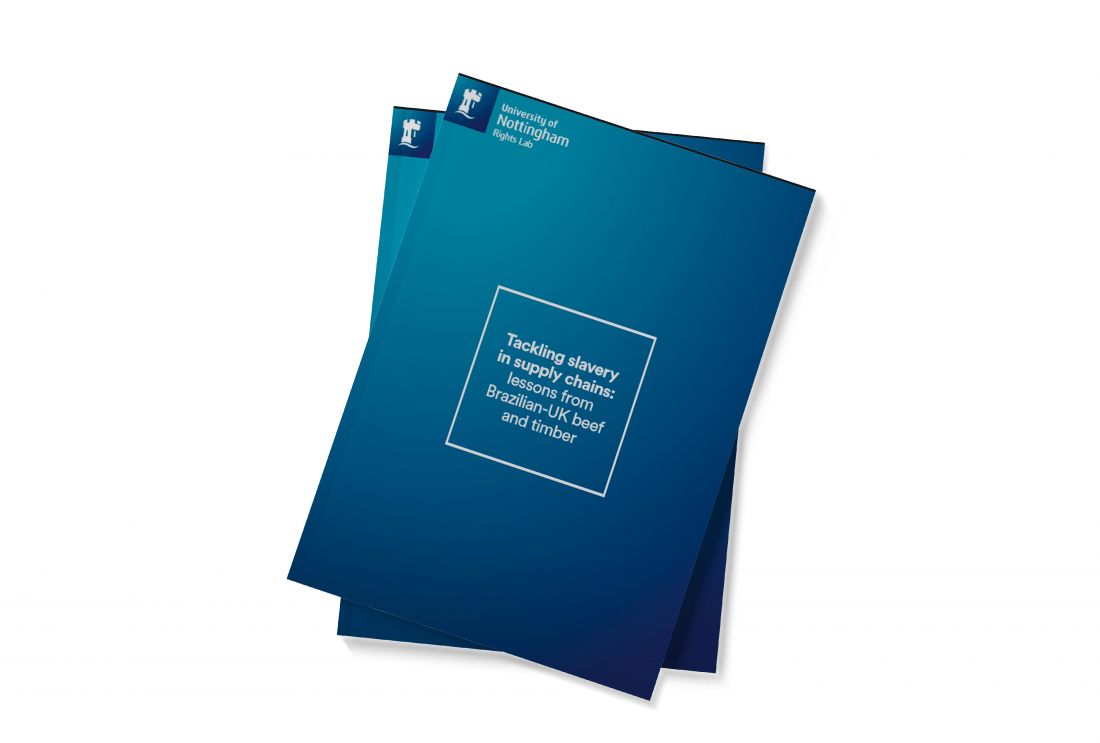
Tackling slavery in supply chains: lessons from Brazilian-UK beef and timber
We’re honored to release the guide “Tackling slavery in supply chains: lessons from Brazilian-UK beef and timber”, directed to supply chain managers and procurement professionals who wish to tackle slavery in the supply chains of the commodity products they source, especially beef and timber. It draws upon collaborative research led by the University of Nottingham and the BRICS Policy Center/ Pontifical Catholic University of Rio de Janeiro (PUC Rio) with nongovernmental organisations (NGOs) Reporter Brazil, Corporate Responsibility (CORE) and the Business and Human Rights Resource Centre (BHRRC). It presents case studies of emerging anti-slavery practices in the Brazilian-UK supply chains of beef and timber.
The report is structured into eight sections. An introduction describes the current scale of modern slavery and provides context relating to the situation in Brazil. Section two provides a legal overview of relevant international trade law and anti-slavery legislation in Brazil and the UK. Section three describes the Organisation for Economic Co-operation and Development’s (OECD) due diligence model for human rights. Section four introduces policy-making and presents examples of modern slavery and sustainable procurement policies. Section five describes practices for awareness raising and assigning accountabilities. Section six details how private compliance initiatives, civil certification, auditing and risk assessment have been used to ensure compliance. Section seven presents a series of case studies drawn from Brazilian-UK beef and timber supply chains that demonstrate capacity development within upstream supply chain operations. Section eight describes the development of reporting methods to measure effectiveness.

